7 Foods That Make Hot Flashes Worse During Menopause
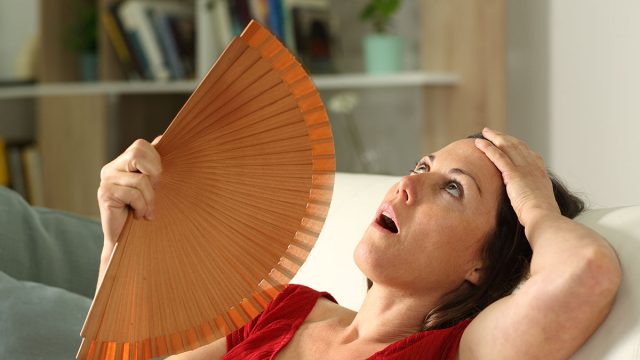
Are you dealing with dreaded hot flashes during menopause? While they are a part of the aging process, you might be aggravating them with your diet. According to Dr. Sina Leslie Smith, MS, MA, LAc, MD, licensed acupuncturist trained in functional, integrative, and culinary medicine and founder of Chicago Healing Center, certain foods make hot flashes worse during menopause. "Lots of foods can contribute to the generation of hot flashes or make hot flashes worse," she says.
Alcohol

A drink or glass of wine might help you relax, but it can also aggravate hot flashes. "Alcohol warms the body and makes sleep disruptions worse," explains Dr. Smith.
Related: This Is Exactly How to Lose Body Fat This Year
Caffeine

You might need a cup of coffee or tea in the morning, but it can trigger hot flashes. "Caffeine raises heart rate and blood pressure, which makes you feel warmer," Dr. Smith explains. Your body interprets those signs as sympathetic drive over stress, which makes hot flashes worse."
Spicy Foods
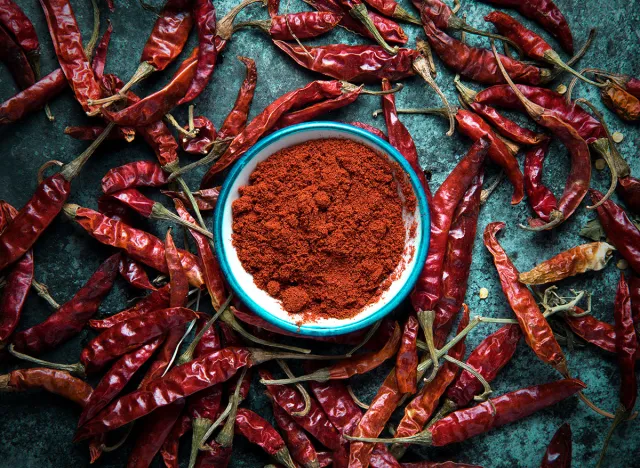
Spicy foods are also a no-no. "Eating capsaicin can lower the body's set point overall (this is why most equatorial cuisines have spicy foods). However, capsaicin makes you sweat—the opposite of what most women are striving for when they have hot flashes," Dr. Smith says.
Fatty Foods
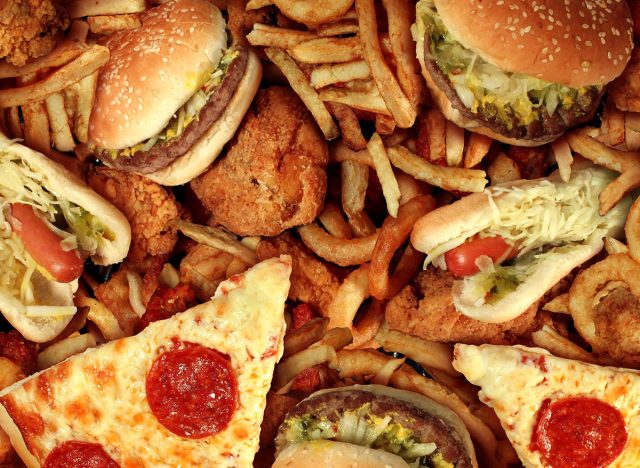
Fatty foods trigger hot flashes as well. "Hormonal changes mean that lipids are being metabolized in different ways during menopause, including cholesterol (LDL, HDL, TG, and apoproteins)," says Dr. Smith.
Shelf-Stable Foods

Dr. Smith explains that most shelf-stable foods are high in omega-6 fatty acids. "This pushes the body into an inflammatory state."
Sugar
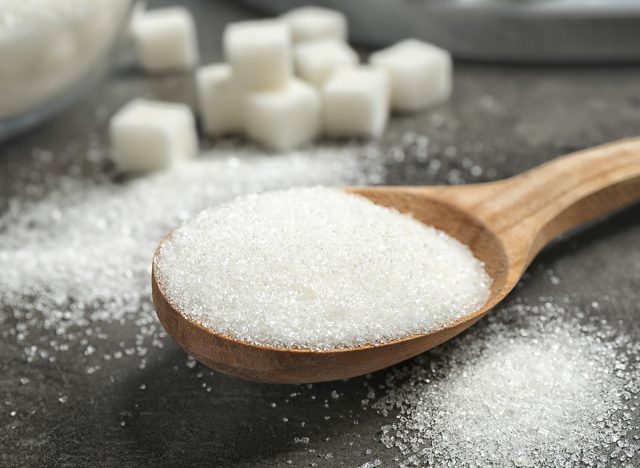
Sugar is "broadly inflammatory," Dr. Smith explains, describing the triggering food. "If eaten in the evening, sugar can disrupt sleep."
RELATED: 40 Silent Signs of Illness in Your Body.
Ginger and Cinnamon
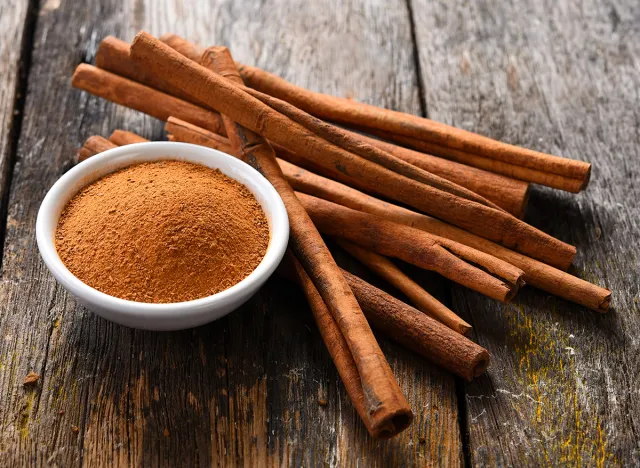
Ginger and cinnamon are "very warming," which is a recipe for disaster with hot flashes. "We seek out herbs and spices that are warming in the cold months—think about what we use to flavor our foods at Thanksgiving and Christmas," Dr. Smith explains. "These herbs and spices will warm the body and, generally speaking, make hot flashes worse."
💪🔥Body Booster: If you are starting to experience hot flashes as part of hormonal changes, the first thing you should do is examine your diet and make some easy changes to it.




